Orange is the New Black stars speak out about ‘crazy and unjust’ pay for Netflix megahit
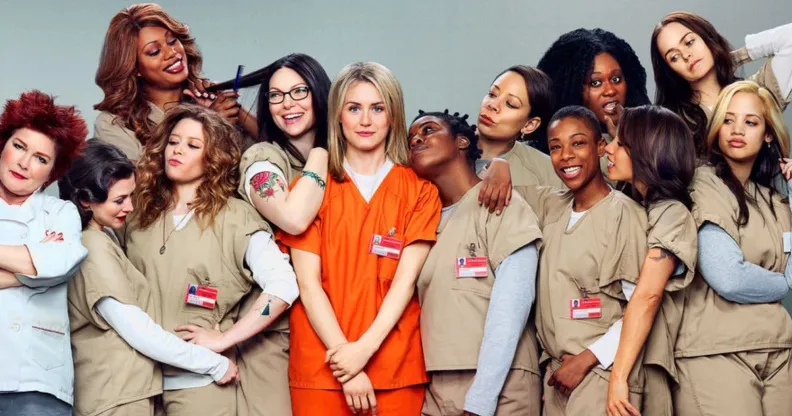
Orange is the New Black cast speak out on ‘unjust pay’. (Netflix)
Just days after Netflix celebrated the 10th anniversary of Orange is the New Black, several of the cast’s supporting stars have claimed they weren’t fairly compensated.
When Orange is the New Black (OITNB) first aired in 2013, Netflix was nowhere near the streaming giant it is today. The trailblazing prison dramedy, that ran for seven seasons and ended in 2019, catapulted Netflix into a new level of recognition as it became a real contender to traditional “linear” TV.
Over the years, the show has been unanimously praised by fans and critics alike for its diverse ensemble cast, championing multiracial queer and trans women and offering an unforgiving perspective on the exploitative US prison system.
However, as Hollywood writers (who are members of writer’s union WGA) and actors (who are members of acting union SAG-AFTRA) officially go on strike to demand fair pay and working conditions, OITNB actors are looking back upon their experiences on the show and asking why they weren’t fairly compensated.
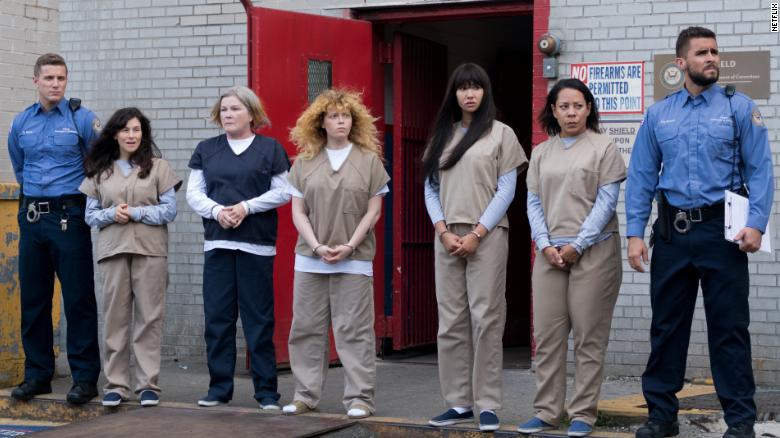
In a damning report published by The New Yorker ahead of SAG-AFTRA announcing an actors’ strike, 10 OITNB recurring stars, including Kimiko Glenn, Alysia Reiner, Beth Dover, Emma Myles, Diane Guerrero, Taryn Manning and Lea DeLaria, spoke with writer Michael Schulman about their woeful experiences campaigning for better pay during the show’s run on Netflix from 2013-2019 – and in the years since.
Alysia Reiner, who played Natalie (Fig) Figueroa, said the cast all “took a risk together” when the show first began, before it skyrocketed to success.
“The reward for Netflix does not seem in line with the reward for all of us who took that risk,” Reiner explained.
“I can go anywhere in the world and I’m recognised, and I’m so deeply grateful for that recognition. Many people say they’ve watched the series multiple times, and they quote me my lines. But was I paid in a commensurate way? I don’t think so.”
Beth Dover, who played prison company manager Linda Ferguson, revealed that she was actually out of pocket during two seasons on the show.
“It actually COST me money to be in season three and four since I was cast local hire and had to fly myself out etc,” she recalled. “But I was so excited for the opportunity to be on a show I loved so I took the hit. It’s maddening.”
Dover also told The New Yorker about Netflix’s excuse of “pinching pennies”.
“They’re telling us, ‘Oh, we can’t pay you this much, because we’re pinching pennies’,” she explained. “But then Netflix is telling their shareholders that they’re making more than they’ve ever made.
“We have not been fairly compensated by any stretch of the imagination.”
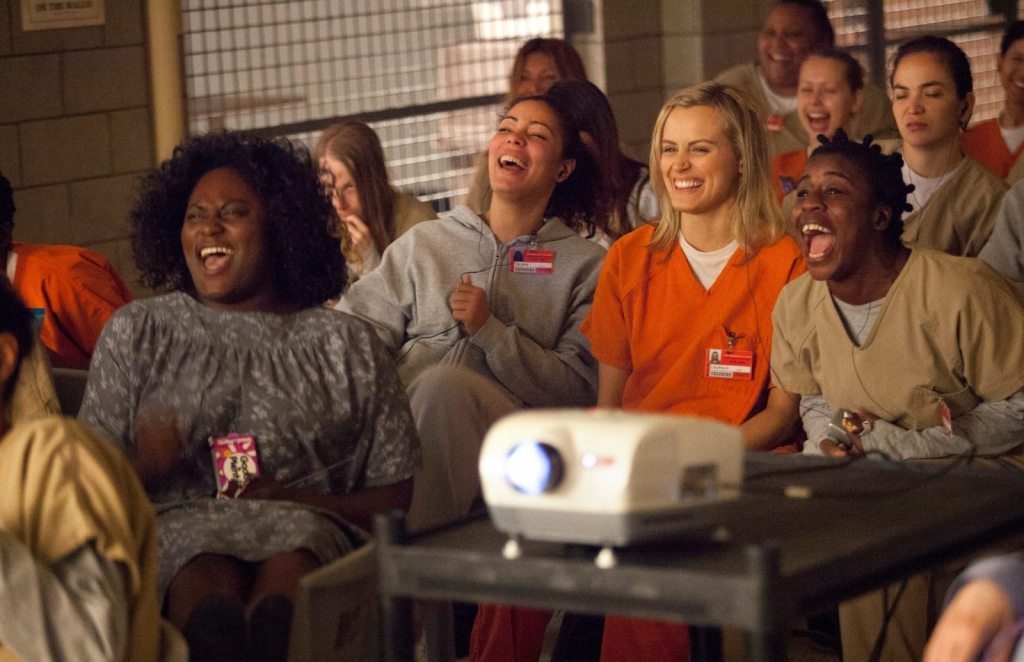
The actors primarily affected were those who appeared as “recurring guest stars” rather than “series regulars”.
Emma Myles, who played antagonist Leanne Taylor for six seasons, was paid SAG’s minimum rate of just under $900 per day; a stark difference when compared to Taylor Schilling, who played series lead Piper Chapman, who was paid $35,000 dollars per episode by 2014.
“It’s always the first thing to come out of our mouths, because it’s so crazy and unjust,” Myles explained. “And everyone thinks we’re kajillionaires. They could and would pay us the absolute bare minimum, and there was really no wiggle room.”
This was also the case with Danielle Brooks, who played fan-favourite character Taystee. Brooks has previously claimed that she was paid less for season seven of Orange is the New Black than the lead child actors in Stranger Things the same year.
The issue was only exacerbated by the lack of residual pay – compensation the cast should receive after the show finishes for any re-runs and re-use of footage. Myles’ 2023 residuals are around the $20 mark, compared to the $600 she scored for her small guest spot on Law & Order: Special Victims Unit back in 2004.
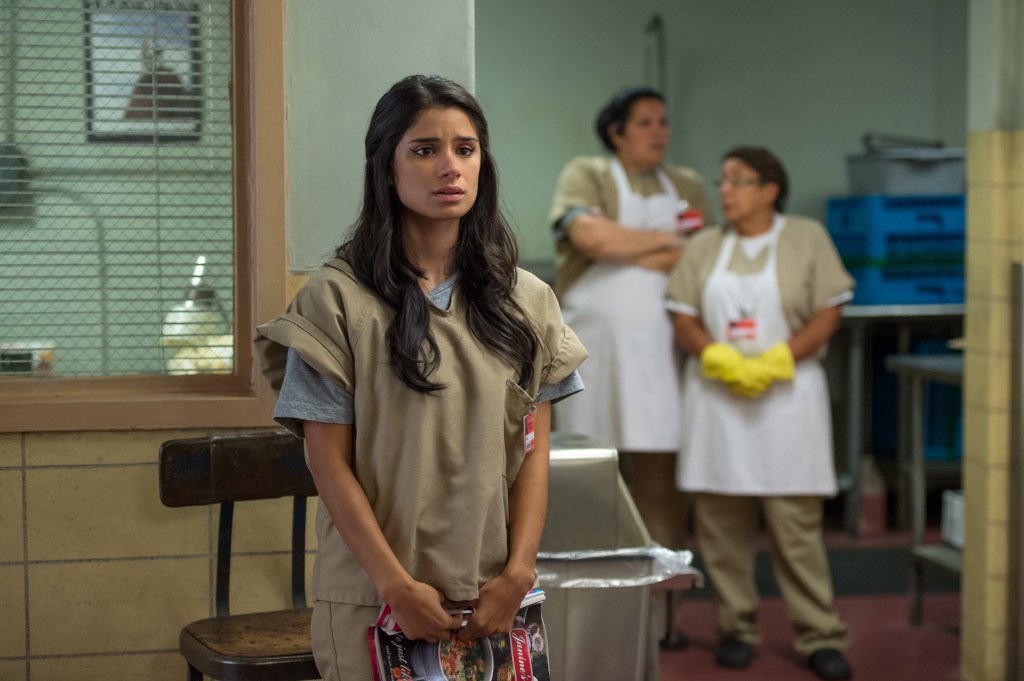
Throughout filming, several cast members were also forced to have secondary jobs including Myles, Lea DeLaria, who played Big Boo, and Diane Guerrero, who played Maritza Ramos.
“How could you tell this complete stranger how much you’re getting paid for being on a television show?” Guerrero recalled about being recognised at work.
“Because everyone’s reaction would be, like, ‘Oh, my God, I love you on that show! But also, what are you doing here?’ It was this incredulity that was teetering on offensive.”
Despite being a major character, Guerrero struggled to make the financial jump to series regular.
“As an actor, that’s a carrot that is always getting held in front of you. If you dedicate enough, and if they like your character enough, you get the possibility of maybe one day being a series regular.”
“I remember all of us thinking, ‘Give us the money!’,” DeLaria added. “But we were always saying, ‘Give us the money.’ We were keenly aware that we weren’t being paid.”
DeLaria went as far as to speculate that Hollywood’s historic gender pay gap could have been a contributing factor to the underpayment of actors on the female-led show.
“I think some of this was because we were a female-centric show. I don’t think there’s anybody out there who doesn’t know that women are paid unequally to men,” DeLaria continued. “We can point at this show and really see it.”
The first stirrings of dissent among the OITNB cast came in December 2020 when Kimiko Glenn, who played outspoken inmate Brooke Soso, uploaded a shocking TikTok. In the clip, Glenn shared her foreign royalty statement, showing that she was paid merely $27.30 in residuals for 45 episodes.
When the WGA went on strike in May this year, Glenn reposted the video to her Instagram, with fellow cast-mates sharing their own experience in the comments.
“Exaccctttlllyyy,” wrote Matt McGorry, who played corrections officer John Bennett. “Kept my day job the entire time I was on the show because it paid better than the mega-hit TV show we were on (and you know many of us kept our day jobs).”
Reflecting on the situation, Glenn told The New Yorker: “So many of my friends who have nearly a million followers, who are doing billion-dollar franchises, don’t know how to make rent.”
Glenn recalled how Netflix refused to pay for taxis to set unless the call time was earlier than 6am.
“The cab rides wouldn’t have been such a big thing if we were paid enough that it didn’t feel like we were spending our paycheques on it,” she said.
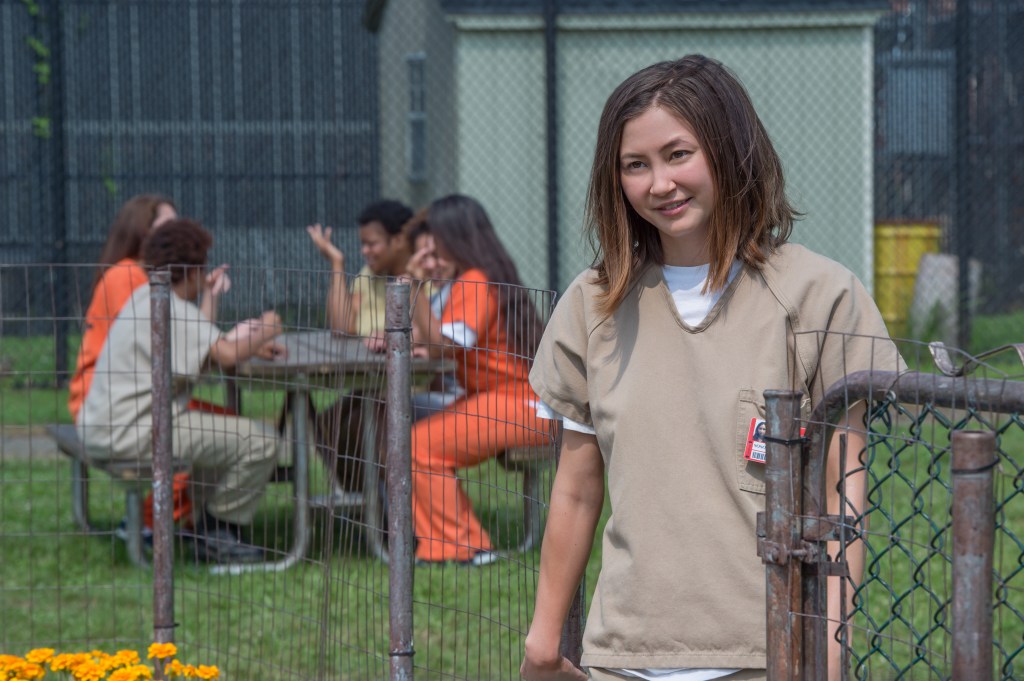
The Orange is the New Black cast join the ranks of Hollywood creatives speaking out about past and present experiences navigating poor pay in the industry. As Hollywood grinds to a halt, with actors and writers concurrently striking for the first time in over 60 years, time will tell how major companies will respond.
Orange is the New Black seasons one to seven are available to watch on Netflix.
How did this story make you feel?

